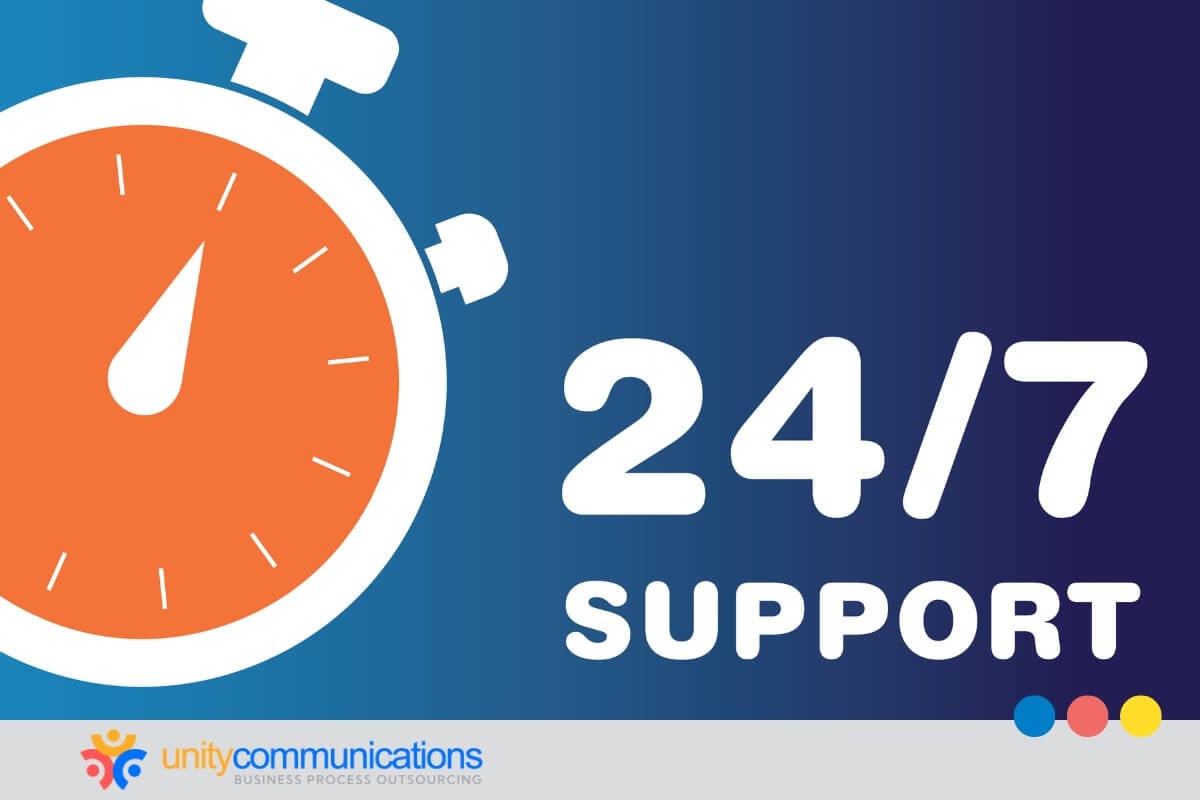IN THIS ARTICLE
Table of Contents
Customer service can offer a competitive edge in the travel industry as it affects satisfaction and loyalty. About 81% of customers will work with a business again if they’ve had a positive customer service journey, while 61% won’t if they don’t.
Did you know that you could significantly improve the customer service your travel agency offers through business process outsourcing (BPO)? Its features let you provide scalable, 24/7, multilingual, and efficient support.
Keep reading if you want to learn more about how travel BPO can help transform consumer journeys. This article explores the benefits of outsourcing customer service processes.
1. Enhance efficiency with cutting-edge customer service tools

Customer service can be tedious and time-consuming. Operational delays increase wait times and reduce customer satisfaction. These are detrimental to your business.
According to Zendesk, a customer service software company, 81% of consumers will continue doing business with a brand they’ve interacted with positively. Meanwhile, 61% will drop a business after one bad interaction.
Outsourcing teams use the latest technologies to streamline customer service processes without compromising quality and accuracy. To better understand how this can benefit your travel agency, let’s first answer the question: What is BPO?
This strategy involves delegating non-core business processes, such as customer service, to a third-party provider. Partnering with a BPO firm with the necessary tools gives you access to these resources. That’s how outsourcing works.
Let’s explore the different technologies travel outsourcing providers leverage:
Automation tools for mundane tasks
You can improve customer service efficiency with automation tools provided by your travel outsourcing partner. Automation can be especially helpful for the following tasks:
- Data entry processing for registering basic customer information, such as names, addresses, contact details, and passport details
- Email and message triggers for booking confirmations, itinerary changes, password resets, and travel document expiry reminders
- Itinerary and booking management for updating clients about flight changes, processing basic reservation changes, and handling electronic hotel check-in and check-out processes
Omnichannel routing
BPO teams use robust omnichannel platforms that integrate various channels such as phone, email, live chat, social media, and self-service portals. This centralized system allows agents to manage all customer interactions from a single user interface, regardless of the communication method.
An omnichannel approach allows your customers to choose their preferred channel for every interaction without repeating specific steps.
For example, the customer’s first point of contact was through email, where they probably had to list basic customer information and travel details. When they reach out to your agency a second time through a different channel, they won’t have to send this data again, as the omnichannel platform already has it stored.
This streamlined process results in faster resolution and reduced wait times, which leads to a more positive customer experience.
Although technology significantly improves customer service functions, travel outsourcing providers don’t replace human interactions. They only leverage these tools to assist skilled agents, not replace them entirely.
2. Employ multilingual and culturally competent agents

Travel BPO lets you tap into a global pool of multilingual agents who are well-versed in customer service best practices and local nuances. The service vendor finds the talent needed for each task, actively recruiting from regions with a high concentration of polyglots.
According to Outsource Accelerator, a multilingual team helps your business minimize language barriers. This reduces misunderstandings and builds trust, which creates a positive customer support experience.
But what is customer support experience? It’s a customer’s overall impression when interacting with your agency’s support team. A multilingual team can quickly strengthen your brand’s reputation, especially among international clients.
Besides being able to communicate with clients in different languages, BPO teams can help you with the following:
Cultural understanding and awareness
Exceptional customer service starts with the first interaction. While a simple hello might seem sufficient, understanding cultural nuances can make a difference for international travelers.
Travel outsourcing teams possess cultural competency. They adapt to various nuances so they can understand the following without stereotypes:
- Communication styles (direct vs. indirect)
- Formality levels (formal vs. informal)
- Greeting customs (greetings based on time of the day)
- Time perception (punctuality vs. relaxed approach)
- Decision-making styles (individualistic vs. collective)
Let’s say a North American customer expresses displeasure straightforwardly. To de-escalate and improve this customer service situation, the travel outsourcing agent leverages their knowledge of North American communication styles by being direct and concise.
They directly acknowledge the situation, show initiative in efficiently resolving the matter, and offer a solution. The agent avoids unnecessary small talk to show their respect for the client’s time.
Localization for a personalized touch
Many travel BPO providers offer localization services. Agents can access travel brochures, website content, and other customer-facing materials translated and adapted for specific regions.
These resources allow them to provide information and recommendations tailored to international clientele’s cultural interests and preferences. They are beneficial for suggesting culturally relevant tours and regional cuisine restaurants based on a customer’s choice.
3. Provide round-the-clock customer support

Traditional in-house customer service often operates within set business hours. This schedule can leave travelers facing late-night disruptions with no choice but to wait until the following day for help.
BPO in travel and tourism eliminates this frustration through continuous operations, helping you enhance client experiences. According to Forbes, providing 24/7 customer service is one way to improve customer service for businesses across various industries.
Here are a few ways outsourcing providers can help your travel agency deliver round-the-clock customer service:
Globally distributed teams
Travel outsourcing providers strategically recruit and train support agents from countries with different time zones. This approach improves customer service and ensures that a travel outsourcing agent is always available to assist a client anytime an issue arises in their time zone.
BPO teams that operate 24/7 can also monitor and advise on various travel factors and potential disruptions, such as:
- Airline schedule changes (e.g., cancellations and delays)
- Visa and immigration alerts (e.g., visa requirements or entry restrictions)
- Accommodation availability (for unexpected changes or finding alternative lodging)
- Weather patterns (e.g., incoming storms, heat waves, or snow storms)
- Local celebrations and festivals (e.g., significant events, festivals, and conferences)
- Social unrest and protests (e.g., political demonstrations that can disrupt travel plans)
- Public health alerts (e.g., infectious disease outbreaks or emergencies)
Efficient workforce management and scheduling
Outsourcing providers have varying work arrangements for their customer support agents. They use historical data on customer inquiries and travel patterns to forecast peak hours and periods of lower activities.
With this information, they can optimize their resources and agents. BPO providers also deploy agents based on their language proficiency and areas of expertise. This strategy boosts efficiencies and improves the scheduling of knowledgeable customer service and travel outsourcing agents.
Here are some arrangements travel outsourcing teams offer:
- Split shifts. Splitting shifts allows you to accommodate agents who prefer working during specific hours, such as evenings and weekends.
- Part-time positions. Part-time positions appeal to individuals who might have other commitments but can still contribute valuable skills during peak hours.
- Work-from-home opportunities. Offering this arrangement can make agents more comfortable working beyond regular business hours.
The bottom line
Outsourcing your travel agency’s customer service is a strategic approach to enhancing client experiences. BPO providers leverage advanced technologies, employ culturally competent agents, and provide 24/7 support.
They streamline processes, reducing call wait times and improving resolution rates. Ultimately, they increase customer satisfaction, loyalty, and positive word of mouth, which are critical differentiators in the competitive travel industry.
Are you considering outsourcing your travel agency’s customer service tasks? Let’s connect and discuss the best solution for your needs and goals.





